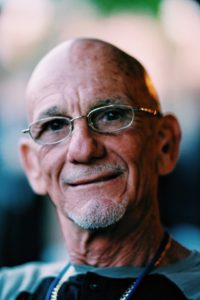The COVID-19 crisis has created a new set of unique challenges for exonerees and an urgent need to fix the Florida state compensation law.
Most Florida exonerees haven’t been compensated because of unnecessary restrictions in the law. This year, the Florida legislature made progress on a bill to improve the law, but failed to pass it before the session ended in early March. Now, exonerees who already faced difficulties rebuilding their lives have been left even more vulnerable in the face of the COVID-19 pandemic.
On Monday, April 6, we will host a virtual town hall with the Innocence Project of Florida, IP client Clemente Aguirre-Jarquin and Florida House Criminal Justice Chair Jamie Grant (R-Tampa). Panelists will discuss the impact of COVID-19 on Florida exonerees and the innocent who remain behind bars. Learn how you can be part of the effort to fix Florida’s exoneree compensation law.
Join the fight to compensate exonerees in Florida
Here is some background on Florida’s flawed compensation law:
- Florida is one of 35 states with an exoneree compensation law that should provide a direct, immediate way for the wrongfully convicted to access resources to rebuild their lives. However, only four exonerees have been compensated since the law passed in 2008 even though more than 30 people were exonerated during that time.
- Most Florida exonerees don’t get a dime from the state and are forced to survive financially after being deprived of opportunities to build careers, establish savings and pay into retirement. The government that unjustly took their liberty doesn’t even cover bare necessities like food, housing and transportation.
- These problems also negatively impact taxpayers because the alternative is for exonerees to file federal civil rights lawsuits. These cases cost taxpayers years of litigation expenses and there is no limit on the amount that can be awarded.
This broken law must be fixed to be effective in helping all Florida exonerees:

Orlando Boquete. Photo by Erin G. Wesley.
- Removing the “clean hands” ban. Orlando Boquete is barred from compensation for his 25 years of wrongful conviction because he committed another crime — escaping from the prison he never should have been in. Florida is the only state with a “clean hands” bar on exonerees who were convicted of unrelated crimes — and it should be removed.
- Fixing the filing deadline. Clemente Aguirre-Jarquin was denied compensation after spending 14 years in prison — including a decade on death row — because he didn’t file his claim within 90 days of his conviction being overturned, as required under the law. He couldn’t have filed in that time restriction because the prosecutor decided to retry him and he was kept in jail. Two years later, the prosecution decided to drop the charges and he filed for compensation, but it was too late.